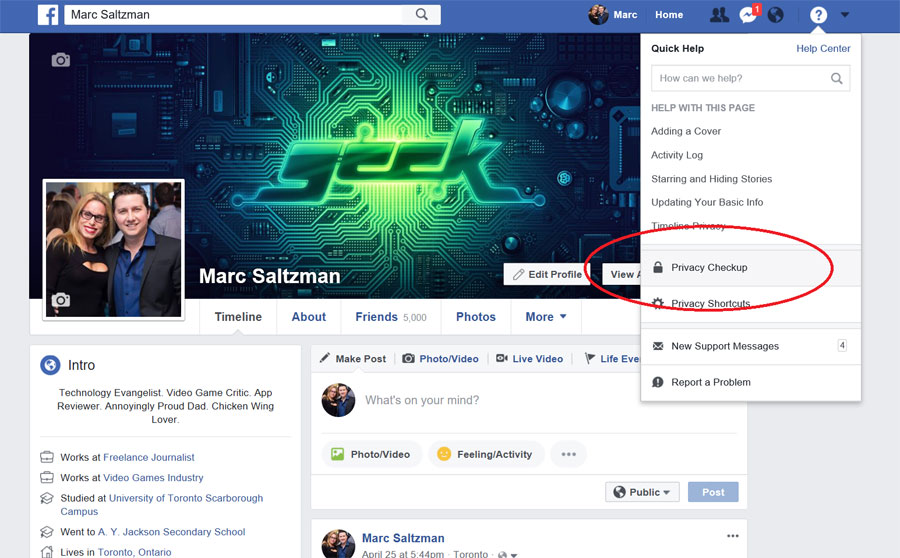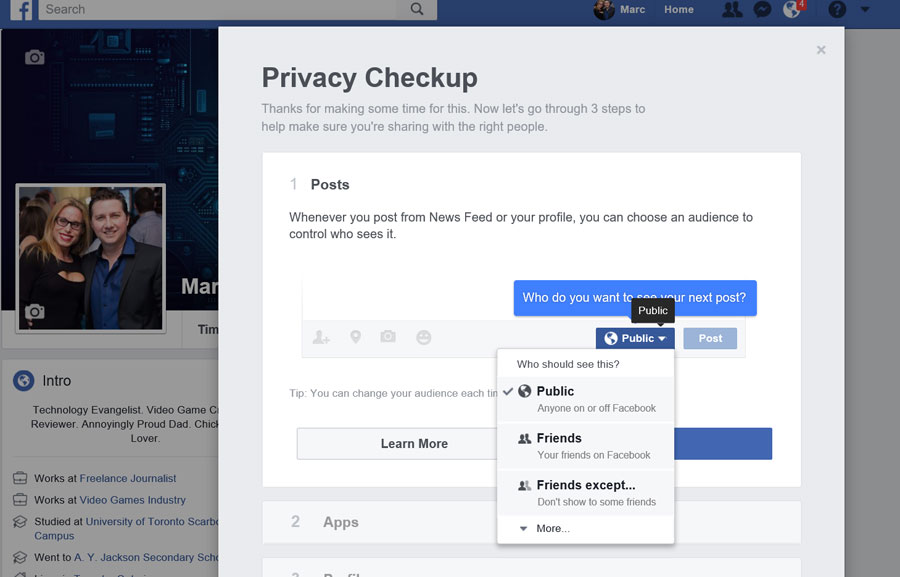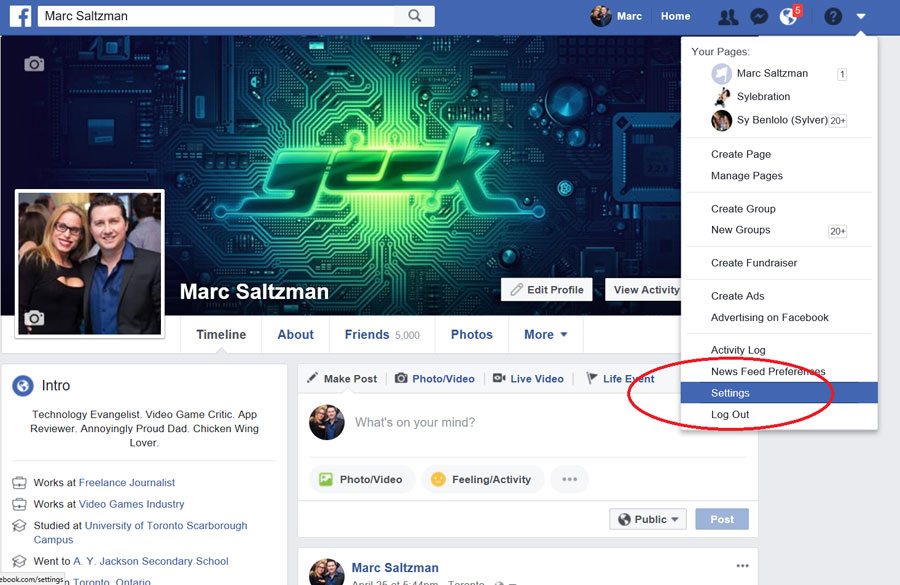It took an event like the Cambridge Analytica scandal — the unauthorized access of Facebook user data from about 87 million accounts, and Facebook not coming clean about it when it was discovered — to shine a spotlight on how much personal data we’re (over)sharing and what’s being done with it.
As part of its mea culpa, perhaps, Facebook has simplified its privacy settings and somewhat locked down access to what third-party apps can do with your data. At the very least, this breach resulted in some positive changes.
With this in mind, the following are a few suggestions on minimizing the odds of having your private info exposed.

1. Complete Facebook’s ‘Privacy Checkup’
Simply click the little question mark at the top righthand corner of any page on Facebook — such as your homepage — and select Privacy Checkup.
Here, you can review and change who can see your posts. Your options include “Public” (anyone on Facebook), “Friends” (your Facebook friends only), “Friends Except…” (to exclude certain friends), “Specific Friends” (only shown to some friends) and “Only Me” (for your eyes only).

This also includes your settings for apps you’ve logged into with Facebook — such as Spotify, Yelp and Pinterest — and you can edit who sees each one on and delete those you don’t want anymore.
You can also view your Facebook Profile information and decide who to share it with. This may include your email address, phone number, birthday, hometown and relationship status.
While there’s no word yet on when it will be rolled out to users, Facebook CEO Mark Zuckerberg also unveiled a new Facebook privacy control tool called “Clear History” at its annual F8 conference on May 1st. As the name suggests, enabling this option will allow you to clear your browsing history on Facebook, including what you’ve clicked on, websites you’ve visited, apps you’ve given information to, and more.
2. Start reviewing, removing some apps
According to Facebook, more than 622,000 Canadians had their information collected by Cambridge Analytica, which was then used to build detailed voter profiles for political campaigns.
A week after the news broke in early April, all Facebook users affected by the breach received a notice on their News Feeds, with a link to see what apps they use and what information they have shared with those apps. Here is where you can delete apps you no longer want.
Even if you weren’t one of the affected Facebook users, it’s a good idea to comb through each app and delete ones you no longer want or use.
To do so, go to any Facebook page, click the little downward arrow (to the right of the question mark in the top righthand corner) and select Settings.

Now click Apps and Websites on the left side. Here you will see connected apps, games and websites that are Active (meaning you recently logged in via Facebook), Expired (apps, games and websites you’ve logged into with Facebook but haven’t used in awhile) or Removed (apps, games and websites you chose to remove from your account). Want to search by name? You can type in the name of a specific app, game or website using the search bar to the right.
To remove an app or website, select each one and then click Remove.
Be aware, though, that app, game and website developers may still have access to the data you previously shared. You can contact the app or website developer for more information.
3. Password tips
Finally, a good password can also help protect your identity in cyberspace.
So, what’s a good password, you ask? It’s at least seven characters long and includes letters, numbers and symbols. Or you could go with an easier-to-remember passphrase, which is a long string of words together (and should include a number and symbol, too). For example, The Beatles’ 1970 song “The Long and Winding Road” could create a passphrase like “TLaWR1970!”
Never use the same password for everything, because if a service is hacked and your password is exposed, cybercriminals will try to do the same to your other accounts. After the last Yahoo breach, for example, stolen email passwords were most likely cross-referenced with users’ bank accounts, according to cybersecurity experts. If you have trouble remembering all your passwords, consider a reliable password manager app.
What’s more, you can make it harder for hackers to access your data by adding a second layer of defence. Wise advice is to use “two-factor authentication.” Highly recommended for all your online activity, such as your social media, web mail, and online banking, two-factor authentication means you not only need a password or passcode, but you will also receive a one-time code notification to your mobile phone that you’ll need to type in.
You don’t need to have a degree in computer science to better protect your information online — just being more selective about whom you share info with, tweaking your privacy setting and adopting stronger passwords should help.
